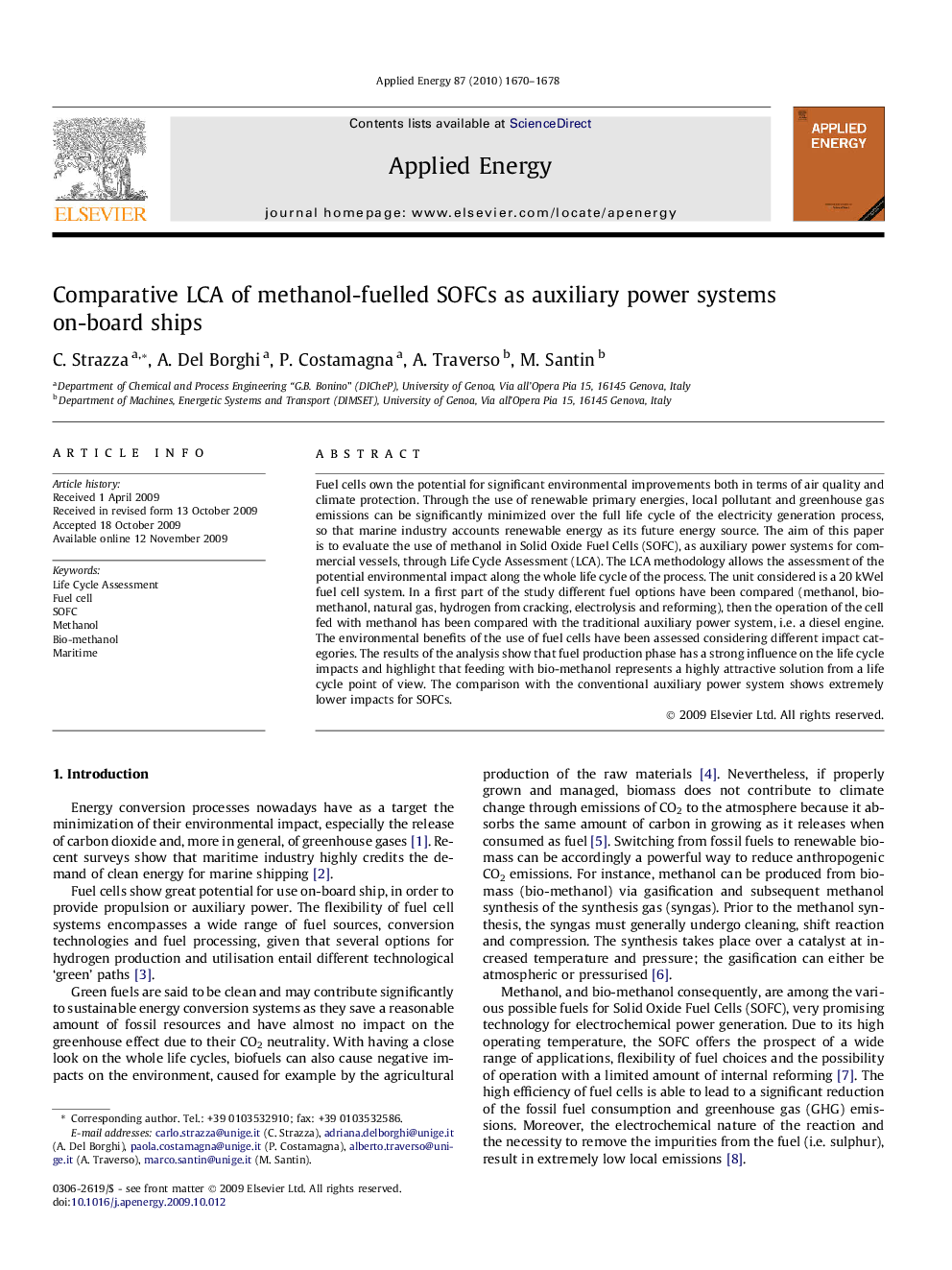| Article ID | Journal | Published Year | Pages | File Type |
|---|---|---|---|---|
| 244480 | Applied Energy | 2010 | 9 Pages |
Fuel cells own the potential for significant environmental improvements both in terms of air quality and climate protection. Through the use of renewable primary energies, local pollutant and greenhouse gas emissions can be significantly minimized over the full life cycle of the electricity generation process, so that marine industry accounts renewable energy as its future energy source. The aim of this paper is to evaluate the use of methanol in Solid Oxide Fuel Cells (SOFC), as auxiliary power systems for commercial vessels, through Life Cycle Assessment (LCA). The LCA methodology allows the assessment of the potential environmental impact along the whole life cycle of the process. The unit considered is a 20 kWel fuel cell system. In a first part of the study different fuel options have been compared (methanol, bio-methanol, natural gas, hydrogen from cracking, electrolysis and reforming), then the operation of the cell fed with methanol has been compared with the traditional auxiliary power system, i.e. a diesel engine. The environmental benefits of the use of fuel cells have been assessed considering different impact categories. The results of the analysis show that fuel production phase has a strong influence on the life cycle impacts and highlight that feeding with bio-methanol represents a highly attractive solution from a life cycle point of view. The comparison with the conventional auxiliary power system shows extremely lower impacts for SOFCs.
